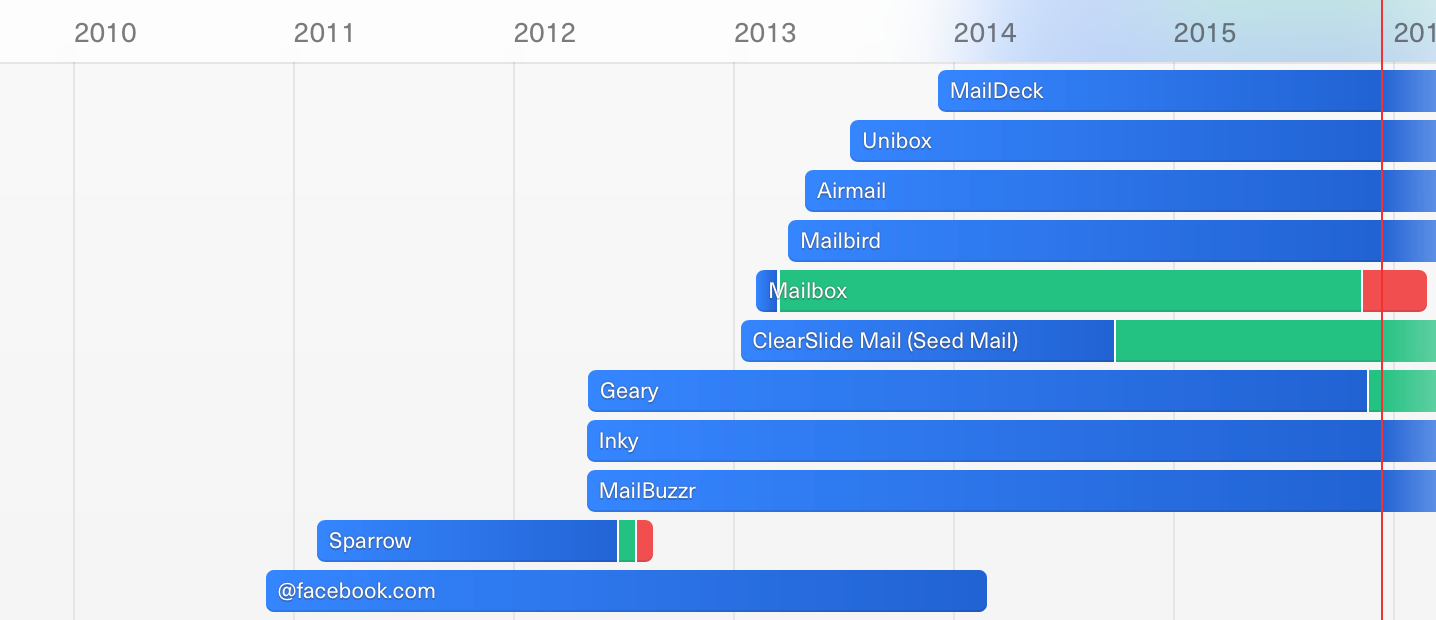A Brief History of Email Apps - Blog post
With Dropbox announcing they are sunsetting Mailbox, people are getting upset by the volatility hitting the email space.
The most upvoted comment on the HN thread crystallizes this frustration:
Ugh. Yet another intriguing email startup being acquired and killed off by a more-established tech company (see also: Sparrow). It's 2015 and I still bounce around email clients every couple months because all of the major options have substantial flaws.
—schneidmaster
Email is rock solid. It didn’t change much over the past decade and stayed ubiquitous. However, the apps we use to consume it evolve at a frantic pace.
Is this a recent trend? Were email companies bought and sold in the past too?
We thought it might be interesting to visualize the history of all those email clients on a timeline: their start, acquisition, and discontinuation.

email-apps-timeline.missiveapp.com
It seems that each time a new platform is released, there is an influx of new email apps released to conquer the new market (web, iOS, Android). Then, big players start to acquire the winners to become the instant frontrunners in those new markets.
In 1998, Microsoft bought Hotmail and Yahoo bought RocketMail. More recently Google bought Sparrow, Microsoft Accompli and Dropbox Mailbox.
The combined valuation of those last three acquisitions, $320 million, is probably another reason why so many apps are being developed since 2013.
What are your takeaways?
- The timeline is undoubtedly incomplete; we probably have forgotten many apps, especially older ones. If so, go ahead and hit the comment section below to suggest missing ones, or open an issue.
- We took inspiration from the team at sameroom.io and their Brief History of Chat Services.
